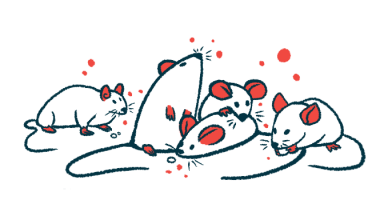Phase 2 Study Proposed for Psilocybin, a Psychedelic, as Microdose Therapy

Nova Mentis, a Canadian biotechnology company, is teaming up with KGK Science to develop Nova’s portfolio of therapies based on the psychedelic compound psilocybin.
The companies are planning to ask Health Canada for the go-ahead to launch a Phase 2 clinical trial in fragile X syndrome that would test very small doses of psilocybin as a microdose therapy.
“In our discussions with KGK, we realized early on that our two teams had the ability to navigate the entire lifecycle journey of our novel psilocybin microdose treatment of Fragile X Syndrome from a Phase 2A clinical study to drug approval and commercialization,” Marvin S. Hausman, MD, chairman of Nova, said in a press release.
“Nova and KGK have synergistic capabilities that will facilitate submission … to Health Canada and achieve, in my opinion, no objection to this unprecedented clinical study,” Hausman added.
Psilocybin is best known for being the main psychedelic agent in “magic” mushrooms that causes hallucinations. In recent years, there has been renewed interest in exploring this compound for its potential benefits in a number of conditions, such as depression and post-traumatic stress disorder.
According to Nova, psilocybin can enhance the brain’s plasticity, improve cognition, and reduce anxiety and behavioral rigidity. It also has the potential to modulate inflammation and the gut microbiota — the natural, beneficial community of microbes living in the gut — an important aspect given many people with fragile X have gastrointestinal disorders.
The planned fragile X study would test microdoses of the therapy — doses too small to induce noticeable psychedelic effects but which may have subtler effects on the chemistry of the brain. Preclinical work by Nova has established the optimal dose for the trial, the company reports.
Psilocybin has been designated an orphan drug, a status that offers financial incentives for potential therapies to treat rare diseases, in both the U.S. and the European Union.
Nova has manufactured a large supply of over 98% pure psilocybin for clinical testing and potential commercialization, and conducted proof-of-concept safety and efficacy experiments in rat models of autism spectrum disorder and fragile X, according to the release.
Nova is working to prepare the application asking for permission to start clinical testing. KGK, which has expertise in treatment development, will be helping with this process.
“I am delighted to work with Nova’s team to advance this novel initiative. Nova’s microdose approach aims to address an unmet need that promises to have a significant impact on the lives of families impacted by Fragile X Syndrome,” said Najla Guthrie, president and CEO of KGK.
KGK Science is a wholly owned subsidiary of KetamineOne Capital.







